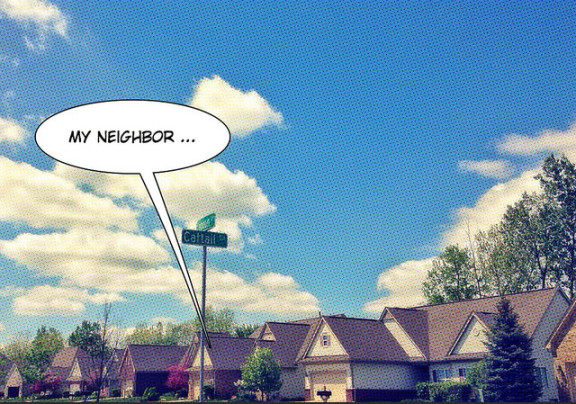During the spring and summer, homes for sale were selling fast. So fast that the typical home was on the market less than a month. And while home buyers should still expect desirable homes to go quickly, there may be some relief in sight. That’s because, new numbers from the National Association of Realtors show that the majority of homes are now on the market more than a month. In fact, properties typically sold in 32 days in September, an improvement over August when homes moved in just 29 days. Lawrence Yun, NAR’s chief economist, says a trend may be developing. “There is a clear shift in the market with another month of rising inventory on a year over year basis, though seasonal factors are leading to a third straight month of declining inventory,” Yun said. “Homes will take a bit longer to sell compared to the super-heated fast pace seen earlier this year.” At the current sales pace, there is a 4.4-month supply of available homes for sale. A 6-month supply is generally considered a healthy market. More here.
Archive for October 2018
Most People Say They Have Good Neighbors
There are a lot of things you can tell about living in a particular a house from a quick visit or two. There are even some things you can tell just from driving through the surrounding neighborhood. But, while you can know how much available storage a house has or how new the windows are, you won’t have as easy a time knowing what your prospective neighbors are like and what it’ll be like living next to them. Fortunately, though, most Americans say they have good neighbors. In fact, according to the results of a new survey from the National Association of Realtors’ consumer website, three out of four people said they have good neighbors. That means, more likely than not, you’ll be able to get along with the people living around you. But what exactly makes a neighbor good? Well, respondents said being trustworthy and quiet were the most important qualities in a neighbor and being disrespectful of property was the worst trait a neighbor could have. But while everyone wants to have a good relationship with their neighbors, they don’t necessarily expect to become best friends. Very few participants said a close friendship was a must, with just 9 percent of women saying so and 20 percent of men. More here.
Demand Slows As Mortgage Rates Rise
According to the Mortgage Bankers Association’s Weekly Applications Survey, average mortgage rates increased last week across most loan categories, including 30-year fixed-rate mortgages with conforming loan balances, loans backed by the Federal Housing Administration, and 15-year fixed-rate loans. The increase follows a general upward trend driven primarily by economic improvement and a stronger job market. Joel Kan, an MBA economist, told CNBC higher rates are also the result of actions taken by the Federal Reserve. “Treasury rates increased over the week, mainly as communication from Federal Reserve officials pointed to a continued path of rate hikes, based on the strength of the economy and hot job market,” Kan said. “Furthermore, four out of five rates tracked in our survey increased.” The increase hit refinance activity hardest, with demand falling 9 percent from the week before. Purchase activity also fell but remains 2 percent higher than at the same time last year. The MBA’s weekly survey has been conducted since 1990 and covers 75 percent of all retail residential mortgage applications. More here.
Optimistic Builders Offer An Encouraging Sign
When builders feel confident that there are a lot of buyers looking for new homes, they build more homes. It’s simple, really. It’s also good for the housing market, as more new homes help provide choices and keep prices from spiking. That’s why the National Association of Home Builders tracks builder confidence each month. In October, their survey found builders optimistic about the market for newly-built homes and confident that buyer demand will remain high. “Builders are motivated by solid housing demand, fueled by a growing economy and a generational low for unemployment,” Randy Noel, NAHB’s chairman, said. “Builders are also relieved that lumber prices have declined for three straight months from elevated levels earlier this summer, but they need to manage supply-side costs to keep home prices affordable.” Among the survey’s three components – scored on a scale where any number above 50 indicates more builders view conditions as good than poor – current sales conditions rose a point to 74 and expectations for the next six months increased to 75. The results are an encouraging sign that new home inventory will improve and help bring more balance to the market, which is good news for buyers. More here.
Fewer Home Buyers Making Offers Sight Unseen
No one wants to make big decisions hastily. It’s a great way to make mistakes and end up with regrets. Which is why, in an ideal situation, home buyers would have time to consider the pros and cons of multiple houses and choose the one that best fits their needs and wishlist. Unfortunately, in a competitive market, that’s not always possible. And so, buyers have to be prepared and ready to make an offer when they see a house they like. The good news is, now that inventory is beginning to rise and houses are staying on the market longer, home buyers have more time to weigh their decision. In fact, according to a recent survey, the number of buyers who made an offer on a house without seeing it first has fallen 15 percent since late last year. This is a good indication that buyers are feeling some relief and aren’t feeling pressured to move as quickly as they were when inventory was tighter. But though this is encouraging news for potential buyers, it doesn’t mean the market isn’t competitive. If you’re interested in purchasing a home any time soon, it’s still best to do your homework, be prepared, prequalified, and ready to make an offer when you find a house you like. More here.
Most Homeowners Say They Love Their House
Sometimes picking a house to buy can cause anxiety. After all, what if you choose the wrong one and aren’t happy living there? What if there are structural or mechanical issues that go undetected and will end up meaning costly renovations? It’s hard to imagine that you could possibly cover all the potential issues in just a few walkthroughs. And so, it’s natural to worry about buyer’s remorse. But, according to a new survey, you might be worrying yourself unnecessarily. That’s because, the results show an overwhelming majority of respondents said they love their current home. In fact, 83 percent of participants said they were happy in their house. To some degree, the responses fell along demographic lines, with people 55 years or older and retirees being the most likely groups to say they love their home and have no plans to move. Respondents between 18 and 34 were more likely to want to move. There were also regional differences. For example, residents in Boston and Detroit were more likely to say they like their current home and would rather renovate than move, while the survey found Los Angeles residents were the most likely to say they’d prefer a new house. More here.
Prices Cuts Rising But Only In Some Neighborhoods
Home prices have been increasing for awhile. But their consistent upward climb is starting to slow, according to new data. In fact, a recent analysis has found the number of home sellers who have reduced their listing price is up from where it was last year. The research shows 17.2 percent of homes for sale reduced their price in August, up from 16.7 percent last year at the same time. That’s encouraging news for hopeful home buyers who have been keeping an eye on affordability conditions. But, though price reductions are at their highest level since 2014, that doesn’t mean every neighborhood is part of the trend. For example, in this case, there are more reductions seen at the higher end of the housing market than in more affordable price brackets. That means, while you may be able to find a better deal in a pricier neighborhood, you may not have as much luck in the more affordable locations popular with entry-level and first-time buyers. That’s why potential home buyers should do some research on their preferred neighborhoods and get an idea of where they’ll be able to get the best deal. More here.







